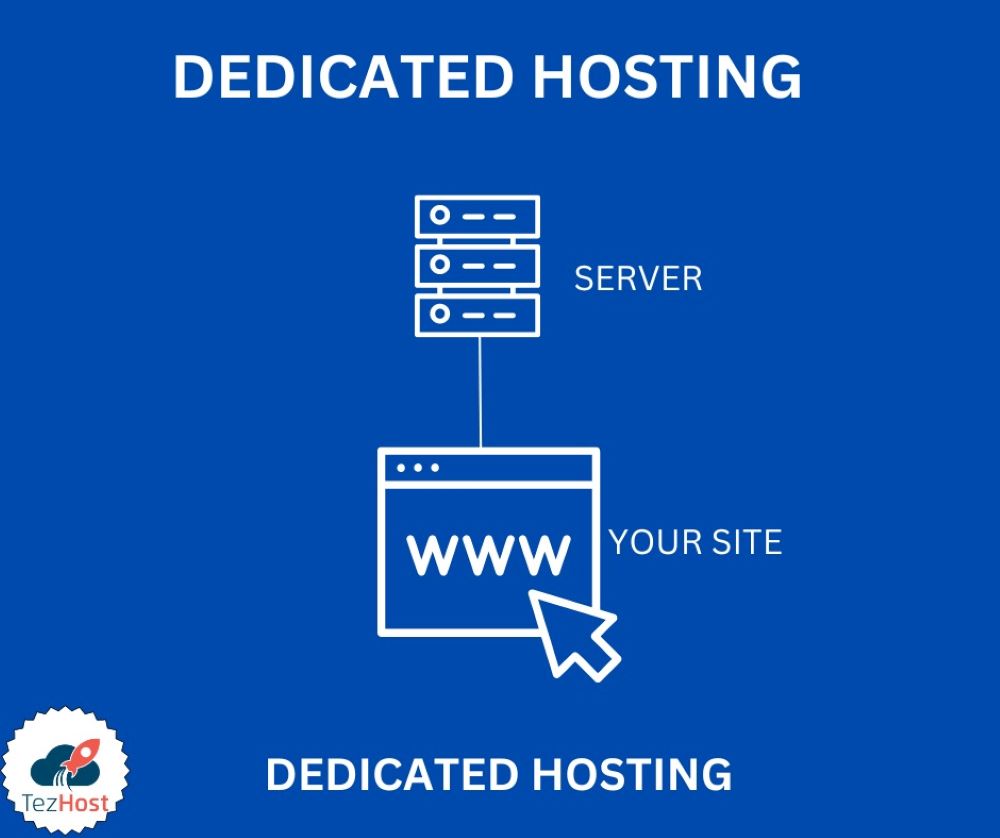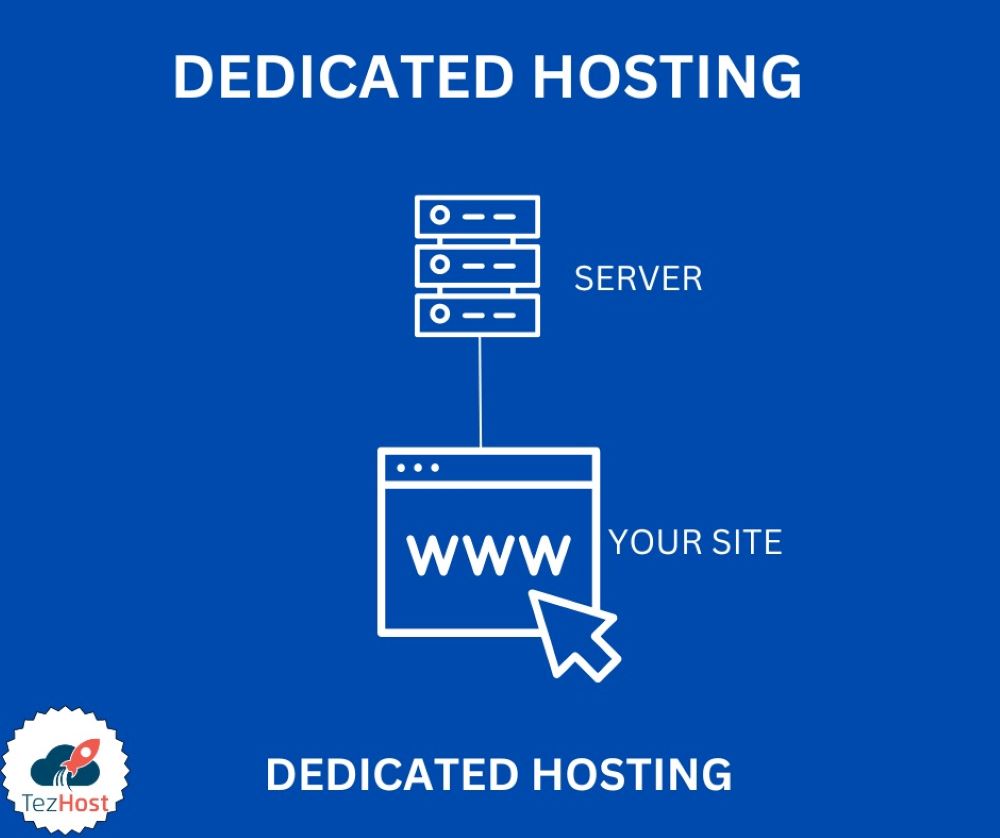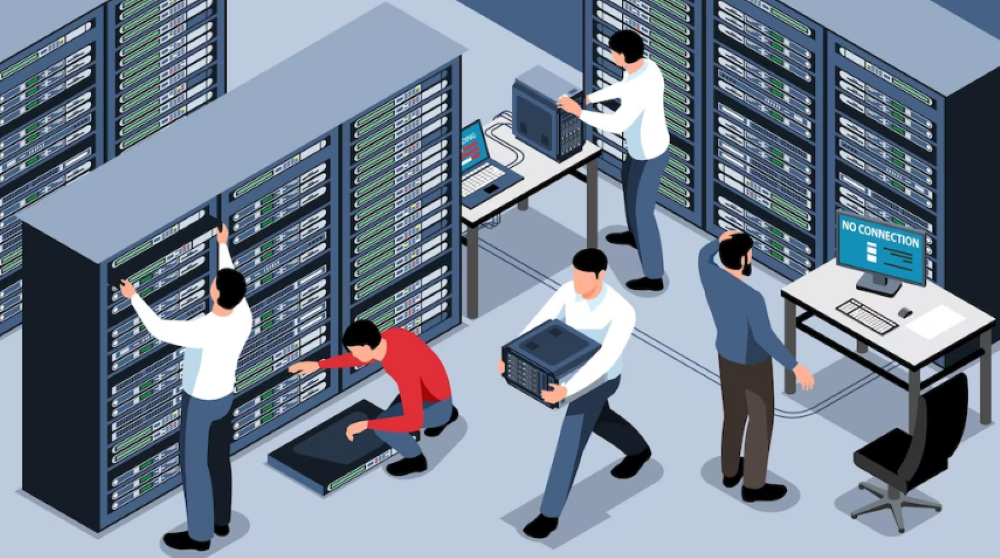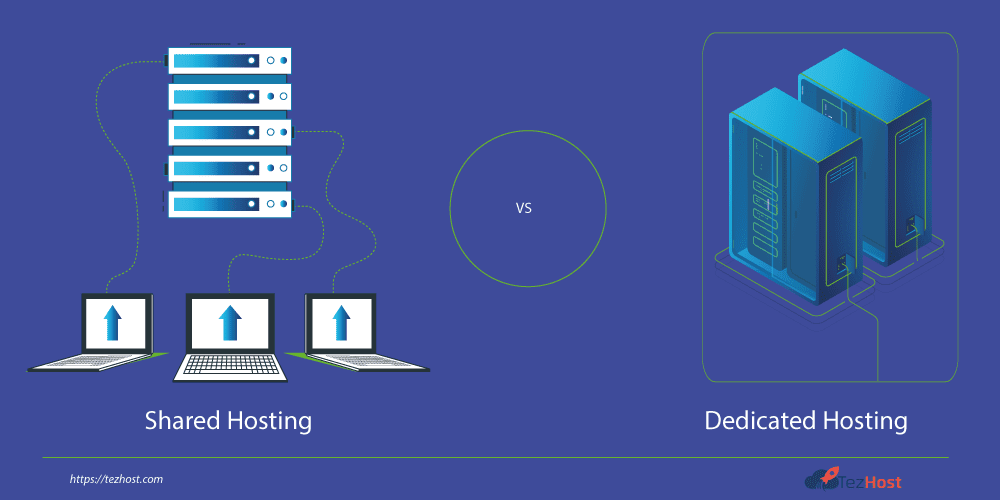How to Optimize the Performance of Your Dedicated Server
A dedicated server is a physical server that is entirely devoted to a single user, organization, or application. It is used to host websites, applications, databases, and other resources that require high performance, reliability, and security. Optimizing the performance of a dedicated server is critical to ensure that it delivers the best possible experience to its users and customers. In this blog post, we will provide you with some tips and techniques on how to optimize the performance of your dedicated server.
So let’s get started!
Optimize the Performance of Your Dedicated Server
Hardware Optimization
The hardware components of a dedicated server play a vital role in determining its performance. Here are some tips to optimize the hardware of your dedicated server:
Choosing the Right Hardware Components
Selecting the right hardware components is essential to ensure that your dedicated server can handle the workload and provide reliable performance. Some factors to consider when choosing the hardware components include:
- Processor: Choose a processor with multiple cores and a high clock speed.
- RAM: Choose a RAM size that can handle your applications’ workload without causing any lag or delay.
- Storage: Choose a storage type (e.g., HDD or SSD) that meets your storage needs and budget.
- Network Interface: Choose a network interface card that can handle your server’s network traffic.
Upgrading the RAM and CPU
Upgrading the RAM and CPU can significantly improve the performance of your dedicated server. More RAM and faster CPUs can handle more requests and reduce the server’s response time. Consider upgrading the RAM and CPU if you notice any performance issues, such as slow loading times, high CPU usage, or insufficient memory.
Storage Optimization
Optimizing your storage can also help improve your server’s performance. Here are some tips for storage optimization:
- Use RAID (Redundant Array of Independent Disks) to improve the reliability and performance of your storage.
- Use SSDs (Solid-State Drives) instead of HDDs (Hard Disk Drives) to improve your server’s read and write speed.
- Use a storage optimization tool to optimize your storage configuration and avoid bottlenecks.
Server Cooling and Ventilation
Cooling and ventilation are essential to maintain your server’s optimal performance. Overheating can cause hardware damage and reduce your server’s lifespan. Ensure that your server is placed in a cool and ventilated environment and that your cooling system is working correctly.
Software Optimization
The software running on your dedicated server also plays a significant role in its performance. Here are some tips for software optimization:
Operating System Optimization
Optimizing your operating system can help improve your server’s performance. Here are some tips:
- Use the latest version of your operating system.
- Disable unnecessary services and processes to reduce CPU and memory usage.
- Configure your operating system‘s settings to optimize performance.
Web Server Optimization
Your web server is responsible for serving web pages to your users. Here are some tips to optimize your web server’s performance:
- Use a lightweight web server such as Nginx instead of a heavyweight web server like Apache.
- Enable HTTP/2 to improve your server’s page load time.
- Use a content delivery network (CDN) to reduce the load on your server.
Database Server Optimization
Databases are essential for many web applications. Optimizing your database server can improve your application’s performance. Here are some tips:
- Use an optimized database engine such as MySQL or PostgreSQL.
- Use caching to reduce the database load.
- Optimize your database queries to reduce the response time.
Application Server Optimization
If you are using an application server such as Tomcat, JBoss, or Glassfish, optimizing your application server can improve your application’s performance. Here are some tips:
- Use a lightweight application server instead of a heavyweight application server.
- Optimize your application code to reduce memory usage and improve performance.
- Use connection pooling to reduce the database load.
Network Optimization
Optimizing your network can help improve your server’s performance and reduce network latency. Here are some tips for network optimization:
Bandwidth Optimization
If you are experiencing slow network speeds or high network latency, consider optimizing your bandwidth. Here are some tips:
- Use a quality of service (QoS) system to prioritize network traffic.
- Enable network compression to reduce data usage and improve network performance.
- Use a load balancer to distribute network traffic evenly among your servers.
Network Security Optimization
Securing your network is essential to prevent unauthorized access and ensure that your server operates optimally. Here are some tips:
- Use a firewall to block unwanted network traffic.
- Enable SSL encryption to secure network connections.
- Regularly scan your network for vulnerabilities and patch any security issues.
Load Balancing
Load balancing can help distribute network traffic among multiple servers to improve performance and reduce downtime. Here are some tips:
- Use a load balancer to distribute network traffic among your servers.
- Configure your load balancer to handle peak traffic loads.
- Monitor your load balancer’s performance to identify and address any issues.
Content Delivery Networks
Using a content delivery network (CDN) can improve your website’s performance by caching content and delivering it from a nearby server. Here are some tips:
- Use a CDN to reduce latency and improve website performance.
- Choose a CDN with servers located near your users.
- Monitor your CDN’s performance to ensure optimal performance.
Monitoring and Management
Monitoring and managing your dedicated server is essential to ensure that it operates optimally. Here are some tips:
Performance Monitoring
Monitoring your server’s performance can help identify issues and optimize performance. Here are some tips:
- Use monitoring tools to monitor your server’s CPU usage, memory usage, and network traffic.
- Set up alerts to notify you of any performance issues.
- Regularly review your server’s performance data to identify trends and potential issues.
Resource Management
Resource management involves ensuring that your server’s resources are allocated efficiently. Here are some tips:
- Use resource management tools to allocate resources to applications based on their priority.
- Monitor resource usage to identify any resource bottlenecks.
- Optimize your applications to reduce resource usage.
Backup and Disaster Recovery Planning
Backing up your data and having a disaster recovery plan in place can help ensure business continuity in the event of an outage. Here are some tips:
- Regularly back up your data to ensure that you can recover quickly in the event of a disaster.
- Test your backup and disaster recovery plan to ensure that it works correctly.
- Store your backups offsite to ensure that they are safe in the event of a disaster.
Regular Software Updates and Patches
Keeping your software up to date is essential to ensure that your server is secure and optimized. Here are some tips:
- Regularly update your operating system, web server, and application server.
- Apply security patches as soon as they are released to reduce the risk of a security breach.
- Test software updates and patches in a non-production environment before applying them to your production server.
TezHost Dedicated Servers
TezHost offers high-performance dedicated servers that are optimized for speed, reliability, and security. Our servers use the latest hardware and software to ensure optimal performance and can be customized to meet your specific needs.
We offer a range of dedicated server plans that can be tailored to your business requirements. Our servers are housed in state-of-the-art data centers, and we provide 24/7 support to ensure that your server is always running optimally.
Here are some benefits of using TezHost dedicated servers:
- High-performance hardware and software to ensure optimal performance.
- Customizable plans to meet your specific needs.
- State-of-the-art data centers with robust security measures.
- 24/7 support to ensure that your server is always running optimally.
- Competitive pricing to meet your budget requirements.
- Multiple Server locations in Germany, USA, and Finland
Conclusion
Optimizing the performance of your dedicated server is critical to ensure that it delivers the best possible experience to its users and customers. By following the tips and techniques outlined in this blog post, you can learn How to Optimize the Performance of Your Dedicated Server. Remember to regularly monitor your server’s performance, allocate resources efficiently, back up your data, and keep your software up to date to ensure that your server operates optimally.
If you are looking for a high-performance dedicated server, TezHost is a perfect choice. Our servers are optimized for speed, reliability, and security and can be tailored to meet your business requirements.
Contact us today to learn more about our dedicated server plans and how we can help you optimize the performance of your server.
TezHost Editorial
TezHost Editorial staff is a team of Marketing experts lead by Arif Wali
Comment:






No Comments yet!